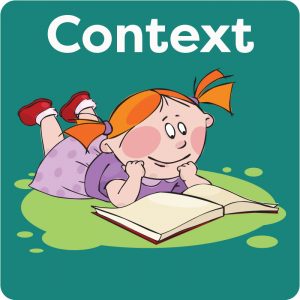
Today’s Walking Classroom podcast discusses clues and how they can be used to help determine the meaning of unknown words or phrases. Similarly, using the skills of observation helps to gather information about certain scenarios. It can be easy to judge or assume things before knowing all the facts. Making sure to understand the context of a situation as much as possible is important before drawing conclusions.
Character Value: Staying focused
Click for Standards Alignment
Common Core
L–Language | SL–Speaking and Listening | RI–Reading: Informational | RL–Reading: Literature | W–Writing | RH–6-8 Literacy in History/Social Studies | RST–6-8 Literacy in Science & Technical Subjects Elementary School:RL.3.4, RI.3.4, SL.3.1, SL.3.4
RL.4.4, RI.4.4, SL.4.1, SL.4.4
RL.5.4, RI.5.4, SL.5.1, SL.5.4
Middle School:
RL.6.4, RI.6.4, SL.6.1, SL.6.4
RL.7.4, RI.7.4, SL.7.1, SL.7.4
RL.8.4, RI.8.4, SL.8.1, SL.8.4
Supplemental Resource Links and Downloads
Quiz: (Make sure you're already logged into your Gmail account, then click to copy this Google form to your Google Drive. Quiz keys are here.)
Learning in Context Google Quiz
Slide Deck:
Learning in Context Slide Deck
Identifies the types of commonly used context clues through a teacher-created song.
Answer questions using context clues in a video game.
Create an anchor chart categorizing the main types of context clues, providing definitions and examples.
Read sentences and use context clues to define an unknown word on this ereadingworksheets.com printable.
Define an unfamiliar word using context clues. Then, identify the type of context clue used.
See More Podcasts in Subject Area: Language Arts
See More Themed Groupings that Contain this Podcast: Grammar & Word Skills

